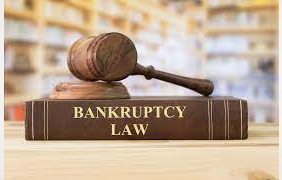Facing financial challenges that seem insurmountable can be a harrowing experience for individuals and businesses alike. In New Jersey, the option of bankruptcy is a legal remedy that can offer a fresh start to those overwhelmed by debt. As New Jersey bankruptcy attorneys, we provide guidance and representation to clients considering bankruptcy as a viable option to restructure or eliminate their financial liabilities. Bankruptcy law can be complex and daunting, and our role is to navigate these waters with our clients, ensuring that they understand their rights and the implications of each decision along the way.
We specialize in handling various types of bankruptcy filings, including Chapter 7, which is a liquidation process, and Chapter 13, which involves a debt repayment plan. The choice between different bankruptcy solutions depends on the specific circumstances and goals of our clients. We work closely with them to assess their financial situations, discuss potential outcomes, and determine the most beneficial path forward. This attention to detail and personalized approach underlines our commitment to achieving the best possible results for our clients while adhering to the legal frameworks that govern bankruptcy proceedings in New Jersey.
Our firm’s expertise extends to constantly staying abreast of the latest changes in bankruptcy laws and court decisions that might affect our clients’ cases. This commitment ensures that we provide accurate and current legal advice. Whether faced with unmanageable credit card debt, medical bills, or the possibility of losing one’s home or assets, our clients rely on us to provide clear, confident, and knowledgeable assistance through each step of the bankruptcy process. We take pride in our ability to deliver these services with the empathy and understanding required during such a difficult time in our clients’ lives.
Understanding Bankruptcy in New Jersey
In navigating the complexities of bankruptcy in New Jersey, it’s essential to be informed about the different chapters available, the structured process to undertake, and the qualifications and limitations that apply.
Types of Bankruptcy Chapters
New Jersey residents and businesses have several options under the U.S. Bankruptcy Code for seeking debt relief. The three most commonly utilized chapters are:
- Chapter 7: This is known as liquidation bankruptcy. It’s designed for debtors with limited income who are unable to pay their debts. Debtors may need to sell certain assets to pay off creditors.
- Chapter 11: Often associated with businesses, this chapter allows for reorganization of debts while the business continues operating. It’s also available to individuals with substantial debts and assets.
- Chapter 13: This chapter is best suited for individuals with a regular income. It enables debtors to restructure and pay their debts over a three to five-year period, without the need to liquidate assets.
The Bankruptcy Process
Our bankruptcy process starts with mandatory credit counseling from an approved agency. Once completed, we’ll assist you with preparing and filing your bankruptcy petition in the bankruptcy courts. Here are the key steps involved:
- Credit Counseling: Must be completed within 180 days before filing.
- Filing for Bankruptcy: We submit your petition and requisite documentation to the court.
- Automatic Stay: Prevents creditors from collecting debts post-filing.
- Trustee Appointment and Asset Review: A trustee is appointed to oversee your case and evaluate your financial situation.
- *Meeting of Creditors: You’ll attend this meeting, where creditors may ask questions about your finances and the submitted documents.
- Debt Discharge or Repayment Plan: Depending on the chapter filed, debts may be discharged, or a repayment plan will be set.
Bankruptcy Qualifications and Limitations
Eligibility for different bankruptcy chapters varies, and certain limitations apply.
- Under Chapter 7, qualification is contingent upon passing a means test, comparing your income to the median in New Jersey.
- Chapter 13 requires that your secured and unsecured debts do not exceed certain amounts.
- Chapter 11 doesn’t have debt limits but is more complex, often necessitating an experienced bankruptcy law firm.
It’s important to be aware that not all debts can be discharged, and certain assets might be exempt from liquidation. Understanding these nuances is critical to making an informed decision on filing for bankruptcy. We’re here to guide you through each step, ensuring a clear understanding of your options and the path to debt relief.
Choosing the Right Bankruptcy Attorney
When facing financial distress, selecting the right New Jersey bankruptcy attorney is crucial. Our focus is on ensuring you understand the key attributes to look for, the significance of a free initial consultation, and the specific practice areas that align with your needs.
What to Look for in a Bankruptcy Lawyer
When scrutinizing candidates, the lawyer’s experience and reputation should top our list of qualifications. We recommend assessing:
- Experience: Look for attorneys with a robust track record in handling bankruptcy cases similar to ours.
- Reputation: Research their standing in the legal community through reviews and peer ratings.
The Importance of a Free Consultation
It is vital that we take advantage of a free consultation offered by law firms. During this meeting, we should:
- Discuss the specifics of our financial situation.
- Understand the process and potential outcomes of our bankruptcy case.
- Gauge the attorney’s approach and determine if it aligns with our expectations.
Areas of Expertise and Practice Areas
Bankruptcy law is complex, and lawyers often specialize in particular subsets of bankruptcy. When hiring legal counsel, we must ensure they have expertise in the areas relevant to our case:
- Chapter 7: Liquidation bankruptcy that can clear certain debts.
- Chapter 13: A plan that allows us to repay debts over time.
It is our right to seek out an attorney who confidently guides us through the bankruptcy process while respecting our needs and rights.




